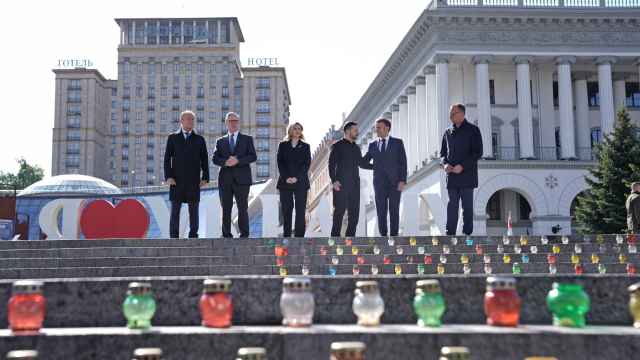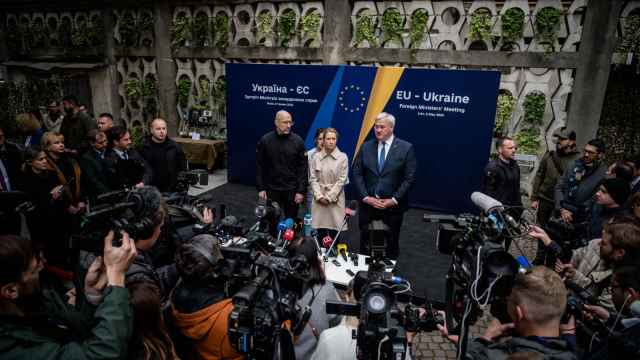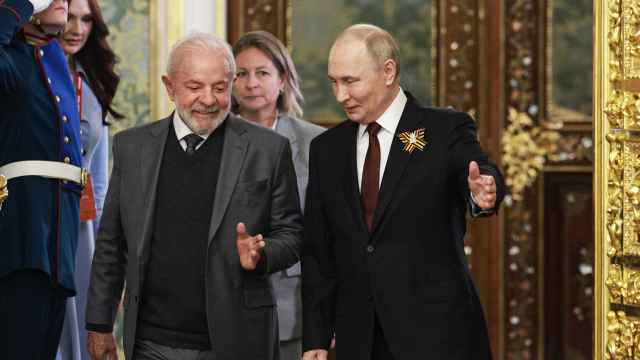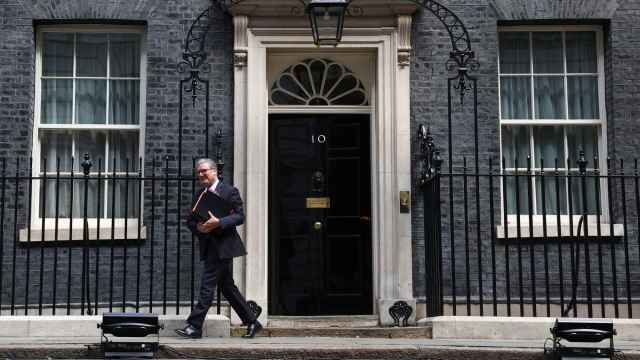SOCHI — Maxim Trankov leaned in front of his teammates as they huddled with President Vladimir Putin and gave a thumbs-up.
The figure skating competition at the Sochi Olympics opened as a celebration of the host country's excellence in the sport. The Russians' history of greatness was forged on the pairs event, but they are seeking some redemption there.
Four years ago, the streak ended: Russia or the Soviet Union had won gold in pairs in 12 straight Olympics dating to 1964. Even worse, the Russians did not take home any medal in pairs in 2010.
Trankov and partner Tatyana Volosozhar set themselves up to start a new streak when they won a world championship last year. With the pairs short program coming up Tuesday, they already know how it feels to hear the chants of "Ro-ss-ia, Ro-ss-ia" reverberating through the arena. Trankov and Volosozhar skated a sharp short program in the team event Thursday. Along with Yevgeny Plushenko, they propelled the Russians to a sizzling start, and Russia clinched the gold on Sunday.
Here are five things to know about the pairs competition:
Practice Run: Trankov insisted the team competition was not preparation for the pairs event, but a different strategy.
He and Volosozhar handed off to another Russian pair for Saturday's free skate. Their biggest rivals, four-time world champions Alyona Savchenko and Robin Szolkowy of Germany, skipped the team event altogether and did not arrive in Sochi until Saturday. Szolkowy did hear from fellow skaters that the team event was a good way to get a feel for the atmosphere of competing. Not that he and Savchenko need the experience. This is her fourth Olympics and his third.
Third Time Charm?: Savchenko and Szolkowy arrived at the Vancouver Games as the two-time reigning world champs, but they had to settle for bronze after he fell on their side-by-side double axels in the free skate. He is now 34; she is 30. But there was no doubt they would try again. They can take inspiration from 2010 gold medalists Shen Xue and Zhao Hongbo of China, who were older when they won in Vancouver after two bronzes.
World Travels: Savchenko and Volosozhar have followed similar paths to this moment. Both are from Ukraine and have competed for the country at the Olympics with partner Stanislav Morozov — Savchenko in 2002 and Volosozhar in 2006 and 2010. Neither finished better than eighth. Both found major success after teaming up with their current partners and switching citizenship.
Silver Linings: Shen and Zhao have retired, but the Chinese teammates who won silver behind them in Vancouver, Pang Qing and Tong Jian, are back. Pang and Tong finished third at the Grand Prix Final. They are also a couple off the ice.
Twice As Nice: For skaters like Americans Marissa Castelli and Simon Shnapir, the new team event was the chance of a lifetime. Not medal contenders in pairs, the two-time U.S. champs are now Olympic bronze medalists after two gritty if imperfect performances. Skating four times in seven days is draining, but it was worth it to give the U.S. the chance at the most points in the team competition.
A Message from The Moscow Times:
Dear readers,
We are facing unprecedented challenges. Russia's Prosecutor General's Office has designated The Moscow Times as an "undesirable" organization, criminalizing our work and putting our staff at risk of prosecution. This follows our earlier unjust labeling as a "foreign agent."
These actions are direct attempts to silence independent journalism in Russia. The authorities claim our work "discredits the decisions of the Russian leadership." We see things differently: we strive to provide accurate, unbiased reporting on Russia.
We, the journalists of The Moscow Times, refuse to be silenced. But to continue our work, we need your help.
Your support, no matter how small, makes a world of difference. If you can, please support us monthly starting from just $2. It's quick to set up, and every contribution makes a significant impact.
By supporting The Moscow Times, you're defending open, independent journalism in the face of repression. Thank you for standing with us.
Remind me later.





